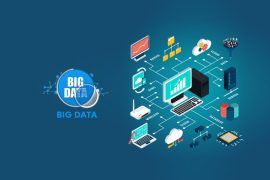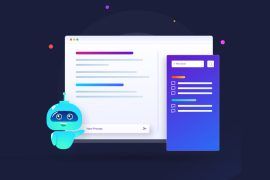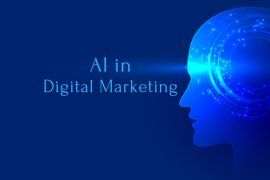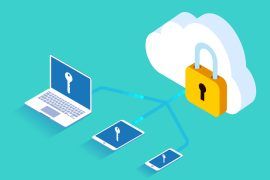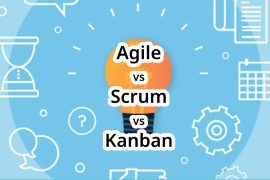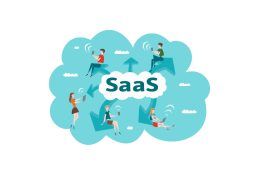Predicting the future is not easy, especially when it comes to businesses. However, technology has made this possible – businesses today can take complete advantage of technology to predict future trends and patterns to enhance their products and services, improve customer interactions, and build their brand. One business area which has undergone a huge transformation, thanks to new technological trends, is accounting. With accounting businesses becoming more tech-savvy and sophisticated, it is not surprising to see financial giants predicting growth of up to $14 billion by 2026 for financial analytics.
Table of Contents
How the Data Technology Trends drive digital business?
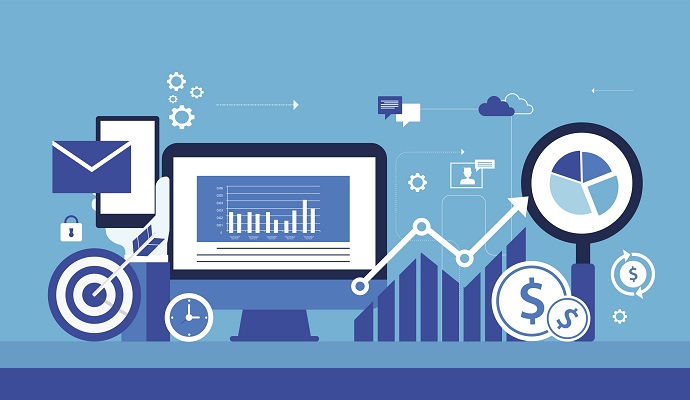
This huge change is a direct impact of various big data trends along with the existing technologies, such as cloud computing, SEO, automation, etc. New trends like Artificial Intelligence, Blockchain, Big Data, etc., have helped businesses to streamline their processes and handle their daily operations in a more efficient and effective manner.
Since the accounting industry relies heavily on being highly accurate, it is even more imperative that they adopt new data technology trends to not just succeed in their business, but also stay ahead of their competitors.
Accounting firms, analysts, CPAs, etc., are well aware of how quickly the accounting practices change as new technologies come into the picture and the impact they have on their business. In this post, we have listed down the top seven data technology trends that have a huge impact on the future of accounting.
Top 7 Data Technology Trends to Watch Out
Read on to find out about the seven key data technology trends that will play a crucial role in reshaping the accounting industry.
1. Analytics
Over the past few years, data has become the ‘hero’ for all types of industries, including the accounting industry. With the help of various technologies, businesses can now easily pull data from multiple sources into one, unified platform. Apart from collecting the data, the other ‘hero’ is analyzing all the data. Accountants today can greatly benefit from analyzing the various data, gathering deep insights, and using that information to perform key functions, such as risk assessment, increase efficiency, etc. Though data analysis is not a new concept in the accounting industry, the scale and the amount of data that can be analyzed is what is revolutionizing the industry. Hence, it is really vital that accountants and accounting firms upgrade their technical skills to stay in the loop and reap the benefits of data analytics.
Along with using advanced analytics, accountants also need to be aware of how to use forecasting techniques. By analyzing the performance data, accounting firms can set up forecasts, plan their campaigns/activities more effectively, make informed, critical business decisions, etc. It is highly recommended that accounting firms should invest in data analysis and data science training programs. The future for accountants with strong data analysis skills is extremely bright and in the near future, the demand for data specialists in the accounting industry is only going to surge!
Having the ability to thoroughly analyze all the data and forecast for the future are two of the most important game-changers in the accounting industry.
2. Artificial Intelligence and Machine Learning
Artificial Intelligence (AI) and Machine Learning (ML) have already established their presence across various industries, and it is not surprising to see their impact on the accounting industry as well. Various studies and researches have proven that professionals from different industries, including accountants have accepted AI in their daily operations as it has helped them improve their efficiency and productivity. One of the primary benefits of embracing AI is that it allows the users to save a lot of time and effort which are otherwise spent on performing time-consuming manual tasks.
Of course, AI cannot completely eliminate manual intervention in the accounting industry, but it can definitely assist accountants to be more accurate and efficient, and also help them in critical decision-making. Apart from using AI to automate processes and tasks, accountants can use it for analyzing documents, gaining deep insights, and preparing comprehensive reports. All of this will allow the accountants to spend their time on high-value tasks. One key advantage of automating tasks is that it will help in reducing risks and errors.
AI is an evolving field which means that in the coming years, it will be able to handle several complex tasks as well, such as identifying fraudulent transactions, compiling financial reports, etc. Artificial Intelligence has already started impacting the accounting industry, and it is highly recommended that accountants upgrade themselves to understand AI and how it can further improve the efficiency and productivity of their business.
3. Remote Work
The Covid-19 pandemic completely normalized the concept of remote working. Even though coronavirus cases are slowly on the decline, more and more companies have adopted the new trend of remote working. The majority of the employees also today prefer this flexible work model, and this preference is quite widespread in the accounting industry as well. Business leaders have also identified the benefits of this work model and witnessed improved efficiency and productivity in their employees. Remote working also offers another key benefit which is reduced overhead costs.
One of the key technologies that enabled accounting firms to adopt remote working is cloud technology. Cloud-based accounting software offers a wide range of benefits including high levels of data security, thus, ensuring that your data is well-protected.
In order to ensure that remote working is successful, it is vital that businesses invest in the right technologies. Accounting industries should look at emerging technologies like virtual communication tools, secure data sharing, and storage tools, cloud-based accounting software, etc. Earlier, it was believed that the traditional form of working from offices and in-person was the most effective way of working; but the pandemic has completely changed this mindset.
Today, accountants prefer flexible working models and by adopting the right tools and technologies, accounting firms can not only retain their workforce but also excel in their business.
4. Blockchain
Over the years, another key technology that has been making waves is blockchain technology. So, what exactly is blockchain technology? In simple words, it can be described as a digital ledger that contains information about various digital assets. This digital ledger records information and ensures that it cannot be hacked or changed in any way. Similar to AI, blockchain technology has also become an integral part of the accounting industry. Since this technology allows secure and transparent transactions, it is definitely one of the emerging data technology trends that should be explored by the accounting industry.
Since this data technology trend is relatively new, there is a lack of workforce who are well skilled in this technology. Hence, it is even more critical for accountants to learn and understand this technology as soon as possible so that they can successfully implement it in their businesses. Currently, blockchain technology has already started impacting the accounting industry by reducing reconciling costs, maintaining ledgers, providing ownership accuracy, history of assets, etc.
Blockchain technology can also help accounting firms reduce their dependencies on third-party vendors like banks, auditors, etc., which in the long run will help them save time as well as money. Blockchain offers accountants a better understanding of their firm’s resources and capabilities which is why it is considered as one of the key data technology trends that will play a crucial role in the reshaping of the future of accounting.
5. Big Data
As mentioned earlier, data has become extremely vital and complex which has resulted in the need for accountants to possess the required skill to analyze and manage all the data efficiently. The importance of big data is only going to increase and with the number of actionable insights it provides, this is one trend that accounting firms should utilize to their maximum benefit. Big data can be described as massive and complex data sets that are collected by organizations from multiple sources. It is crucial to store this massive data in a structured way, gather relevant insights from it, and use it as actionable items.
Already more than 60% of accounting firms across the globe have started using big data to not just enhance their processes and tasks, but also determine any potential problems and find their solutions in advance. Firms can also use big data to identify emerging trends, use the insights to forecast, analyze risk levels, prepare contingency plans, and provide valuable information to their clients. They can also create more effective and productive business models by analyzing big data.
Because of the impact that big data has on the future of accounting, it is recommended to hire accountants who have strong data analysis and data science skills as it will be easier for them to analyze the complex data sets and processes, anticipate any future risks, and prepare plans accordingly.
6. Data Security
Today, digital communication has taken over the traditional forms of communication and this is evident in the accounting industry as well where large amounts of data are shared digitally between accounting firms and their clients. This means that they are prone to cyberattacks by hackers and other cyber threats. Data security is extremely vital, and companies should ensure that they are investing in the right data security tools and technologies and providing their employees with adequate training on how to use these tools and avoid any data security breach. Since accounting information is highly confidential, the accounting industry should focus on data security as it can make or break their business.
There are several cloud-based accounting software that offers data security as one of their main features. They offer this feature at cost-effective prices and are scalable as well in terms of secure online data storage. With cloud-based software, accountants can easily access their work from anywhere and at any time. One major feature that accounting firms should look for is multi-factor authentication which will ensure that only authorized personnel are accessing the sensitive data.
A customer’s financial information is one of the most confidential and valuable assets for any accounting firm and they must protect it at any cost. Even a minor data security breach can result in huge losses which is why data security is considered an important data technology trend in reshaping the future of accounting.
7. Social Media
The role of social media has evolved a lot – it is no longer just a medium to stay in touch with your family and friends. Today, social media is considered one of the most important channels for businesses to interact with their customers, build their brand and reputation, drive traffic, build an effective online presence, and increase their brand awareness. Having a successful social media team will also help businesses use the medium as a potential sales platform.
This platform can do wonders for the accounting industry as well, and according to various studies, almost 77% of accountants worldwide are already using social media to their benefit. Since social media is here to stay and will only grow more, accounting firms should look at hiring accountants who are adept at leveraging the platform. There are several ways in which accounting firms can use social media, such as communicating regularly about your firm, new products/services, upcoming events, etc.
Social media is one of the best ways for accountants to build relationships, grow their network, and take their business forward.
Conclusion
To summarize, the future of accounting is definitely set up for a revamp and these seven key data technology trends will help accounting firms across the globe to stay relevant, up-to-date, and ahead of their competitors. Every technology comes with its own share of pros and cons, and firms should weigh them and decide on what impact will the technology have on their business and whether it will be beneficial for them or not.
If you are looking for some of the best accounting software in the market today, check out SaaSworthy!
Also Read

